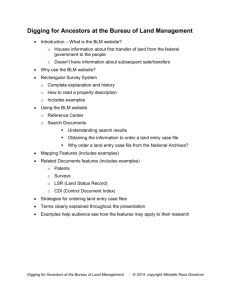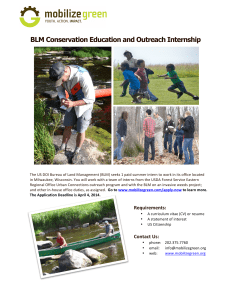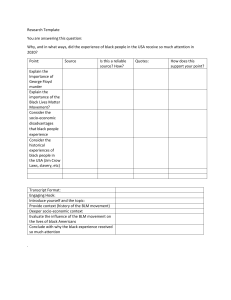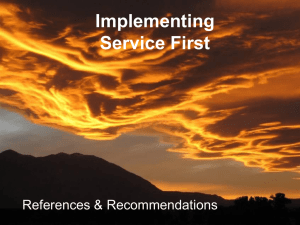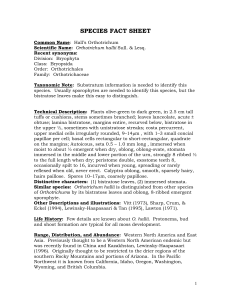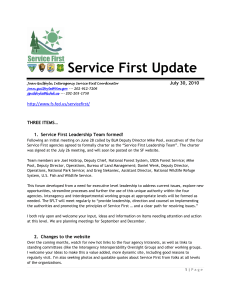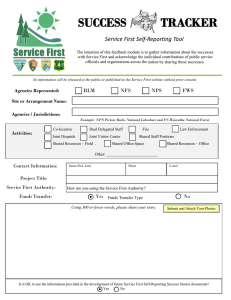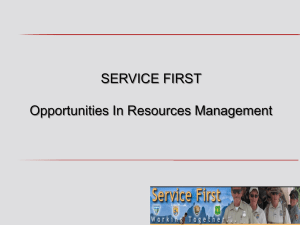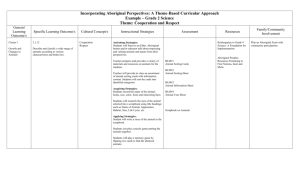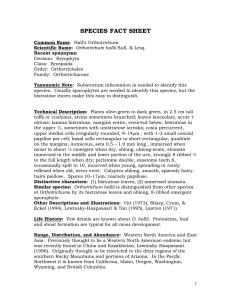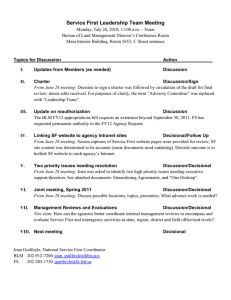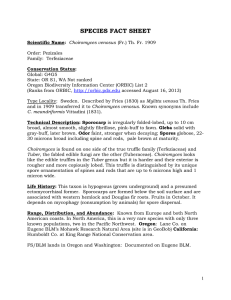Interagency Service First Meeting March 4, 2010, Reno, Nevada
advertisement
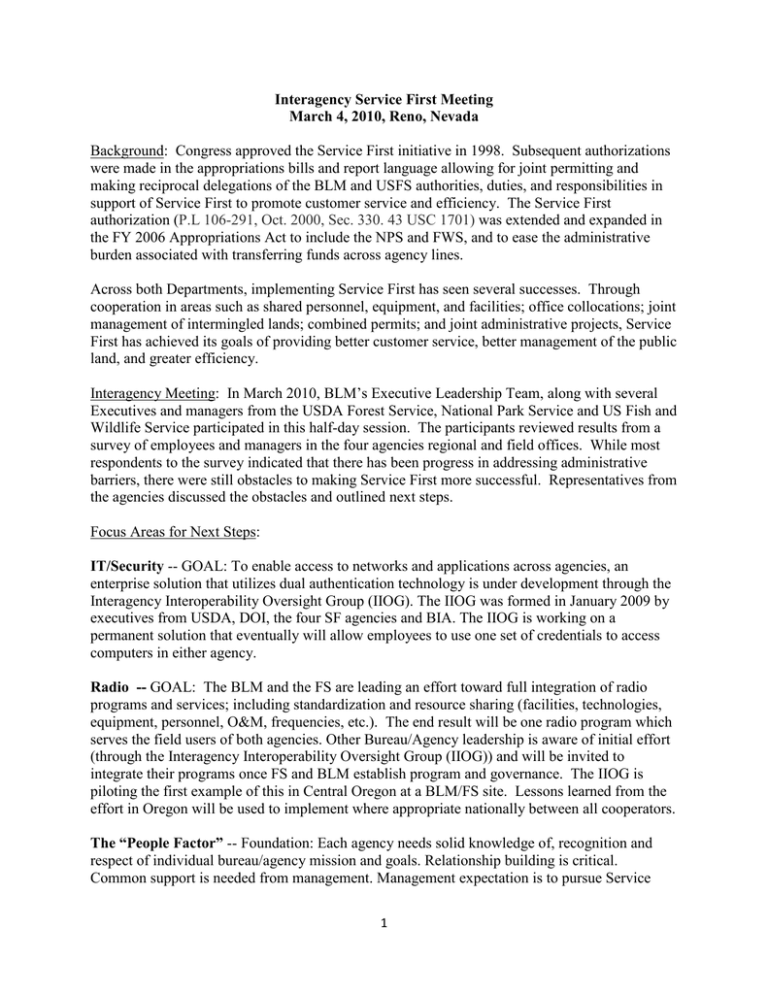
Interagency Service First Meeting March 4, 2010, Reno, Nevada Background: Congress approved the Service First initiative in 1998. Subsequent authorizations were made in the appropriations bills and report language allowing for joint permitting and making reciprocal delegations of the BLM and USFS authorities, duties, and responsibilities in support of Service First to promote customer service and efficiency. The Service First authorization (P.L 106-291, Oct. 2000, Sec. 330. 43 USC 1701) was extended and expanded in the FY 2006 Appropriations Act to include the NPS and FWS, and to ease the administrative burden associated with transferring funds across agency lines. Across both Departments, implementing Service First has seen several successes. Through cooperation in areas such as shared personnel, equipment, and facilities; office collocations; joint management of intermingled lands; combined permits; and joint administrative projects, Service First has achieved its goals of providing better customer service, better management of the public land, and greater efficiency. Interagency Meeting: In March 2010, BLM’s Executive Leadership Team, along with several Executives and managers from the USDA Forest Service, National Park Service and US Fish and Wildlife Service participated in this half-day session. The participants reviewed results from a survey of employees and managers in the four agencies regional and field offices. While most respondents to the survey indicated that there has been progress in addressing administrative barriers, there were still obstacles to making Service First more successful. Representatives from the agencies discussed the obstacles and outlined next steps. Focus Areas for Next Steps: IT/Security -- GOAL: To enable access to networks and applications across agencies, an enterprise solution that utilizes dual authentication technology is under development through the Interagency Interoperability Oversight Group (IIOG). The IIOG was formed in January 2009 by executives from USDA, DOI, the four SF agencies and BIA. The IIOG is working on a permanent solution that eventually will allow employees to use one set of credentials to access computers in either agency. Radio -- GOAL: The BLM and the FS are leading an effort toward full integration of radio programs and services; including standardization and resource sharing (facilities, technologies, equipment, personnel, O&M, frequencies, etc.). The end result will be one radio program which serves the field users of both agencies. Other Bureau/Agency leadership is aware of initial effort (through the Interagency Interoperability Oversight Group (IIOG)) and will be invited to integrate their programs once FS and BLM establish program and governance. The IIOG is piloting the first example of this in Central Oregon at a BLM/FS site. Lessons learned from the effort in Oregon will be used to implement where appropriate nationally between all cooperators. The “People Factor” -- Foundation: Each agency needs solid knowledge of, recognition and respect of individual bureau/agency mission and goals. Relationship building is critical. Common support is needed from management. Management expectation is to pursue Service 1 First where it makes sense. Service First legislation needs to be extended/made permanent. There is a need to establish recurring meetings at the regional level. Our Agency Secretaries need to emphasize collaboration with other bureau/agencies in achieving mission goals. The “People Factor” Action Items: Include Service First training in participating bureau/agency management and leadership classes, such as NPS’s new Superintendent’s training, BLM’s Leadership Academy, etc. Work together on the results of the Employee Viewpoint Survey, and create improvement efforts where it makes sense to do so, such as common supervisory training, and other joint training on government-wide, common things. e. g. understanding employee benefits. Establish a Human Capital Managers Forum to develop national instruments, i.e. share each other’s staffs, cross-supervision ability, consistent approach to performance appraisals when supervisors are in other bureaus/agencies, how to handle discipline issues, etc. Enable promotion of America’s Great Outdoors on a cross-agency, cross-Department basis. Cross-Delegation of Authorities: The agencies have many successful models being implemented in the field for cross-delegation of authorities. Reviewing those models in Colorado, Oregon/Washington, Arizona and Southern Nevada could assist in determining where there are improvements needed and lessons learned. Some of the recent organizational changes in Colorado have impacted how Service First is being implemented. The Colorado State/Regional organizations agreed to look at: How the Forest Service could meld with BLM’s 3 tier organization. Boundaries created in BLM’s three-tier organization. Defining terms for better common understanding: eg co-location, co-supervision. Administrative Processes -- GOAL: Our group looked at how to make it easier for the public to work with our agencies and how to make it easier for employees to work across agency lines. Improve coordination and share curriculum development strategies for technical resourceoriented training, including wilderness, ecological site descriptions, etc) and for common leadership and IT security training. Develop clearinghouse for common Service First issues and establish a “go-to” help source. Work together to make partnership development with externals more seamless, such as with stewardship contracting, agreements, etc. 2
